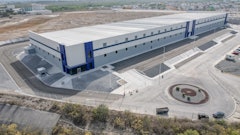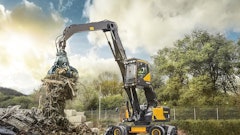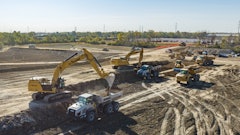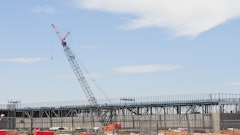You have all heard about the stimulus package and the incentives in place to encourage U.S. consumers to spend their money, i.e., to buy cars and homes. And with current mortgage rates, there is a tremendous incentive to either buy that first house or refinance an existing mortgage. If you have the capital, it appears now is a great time to invest or spend it because pricing is great, the upside above average and the financing costs non-existent.
There has even been an uptick in new home sales, along with a decrease in the used inventory of housing in the market. It not only seems there are numerous spectacular deals being made out there, there are many spectacular deals still out there waiting for someone to take advantage of the situation.
While many appear geared toward consumers, there are incentives available to business owners, as well. They may not be as plentiful as you would like, but there are several you can take advantage of to keep your costs to a minimum or increase your capital base to keep the business going.
Contractors and other construction-related companies have seen their workloads dwindle and competition increase. As a result, even if you get work, the margins are squeezed to the absolute minimum. Consequently, it's imperative to work as efficiently as possible, maintain your capital base and cut costs wherever you can.
To help achieve these goals, you have to take advantage of what is being offered through government programs, along with what is offered in the marketplace, because together they bring significant benefits to your side of the table. Business owners owe it to themselves and to their employees to take the time to investigate these opportunities and learn how to use them to their benefit.
Make use of tax incentives
Tax incentives can help you purchase equipment, defer gains on an equipment sale and offer up greater write-offs for equipment. You can even get cash back from the IRS by filing carryback claims and/or monetizing AMT credits. These are real dollars we're discussing here - dollars you need to run your business.
Incur a tax loss in 2008? You now have the ability to carry back that loss three to five years to recoup taxes paid during that period. If your business was rocking back then, you have a real incentive to see how much you could recapture by filing carryback claims.
The tax stimulus was extended through 2009, so you can take Bonus Depreciation, or write off 100% of the asset purchase in year one using Section 179. In either case, you get to write off close to 100% of the cost of any equipment you purchase and place in the dirt before December 31, 2009. If you carried back 2008 tax losses but still have years open where you paid taxes, these depreciation deductions may help you retrieve whatever tax balances remain.
If you find you need to reduce your equipment fleet to generate cash, remember that you will probably generate a taxable transaction equal to the cash proceeds you collect. If you sell off a substantial amount of equipment, this could present a problem.
It doesn't make sense to sell off equipment to generate cash only to give it back in taxes six months later. This is where you may want to entertain a 1031 tax-free exchange to defer the tax. Of course, a 1031 may not work for everyone, since you do have to replace the equipment sold within a specific time frame in order to get the benefits.
Capitalize on interest rates
The stimulus program is sure to generate a lot of construction work, so it behooves every contractor to find a niche they can fill given the type of work available. It appears the road and bridge work is most likely to hit the market very soon.
Once you find out what type of work is coming down the pike and how you can participate, it's time to get closer to your bankers to get a shot at lower interest rates, and to be ready to obtain the credit you need to chase new business.
Just look at those rates - folks, it's as close to free money as you can get. Investigate refinancing any and all bank arrangements if you can. Equipment loans, truck loans and working capital loans need to be reviewed and shopped. If you have the credit and a strong balance sheet, you may get lucky.
Credit will get better sooner rather than later. Banks are in the business to lend. You may not get terms similar to what you were receiving a few years ago, but at least you will be getting the working capital you need to operate your business.
Ask for discounts
Everybody in the construction industry is in the same boat; they see fewer sales on the horizon and are looking for ways to keep existing customers and attract new business. Thus, every vendor you work with has some form of incentive or stimulus program available - all you have to do is ask for it.
Suppliers want your business and loyalty, and do not want to lose you as a customer. Make it a point to ask vendors for a discount, and you may be amazed at what you get. Of course, if you are in a position where you're not paying your bills, no discounts or incentives will be forthcoming.
On the equipment side, your dealer or rental company will provide incentives if you, in turn, offer to give them "first call" with all your equipment or rental needs. Rather than negotiating every day for a new deal, you may be better off working out programs that remain in place for the entire year. These agreements should take into account discounts geared to the amount of business you bring to the table; the use of demos when you want to try a new unit; lower transaction costs for pickup and delivery of equipment, etc. You get the idea.
If you have a good business and try to pay your bills on time, you have many opportunities to "partner" with vendors to ride out the recession together. Give these ideas a try. There is more help out there than you think.
Garry Bartecki is the managing member of GB Financial Services LLP and VP Finance for the Associated Equipment Distributors. He can be reached at (708) 347-9109 or mailto:[email protected].




























